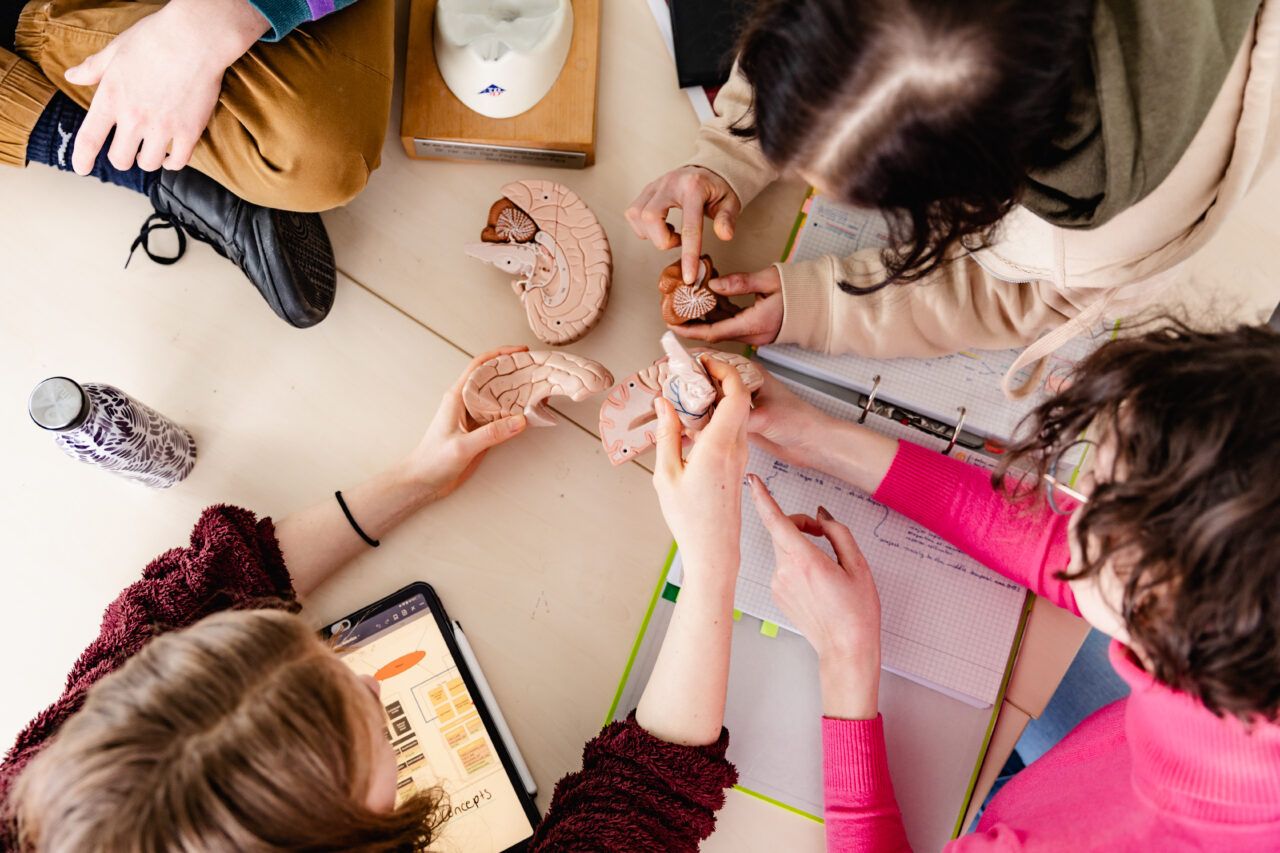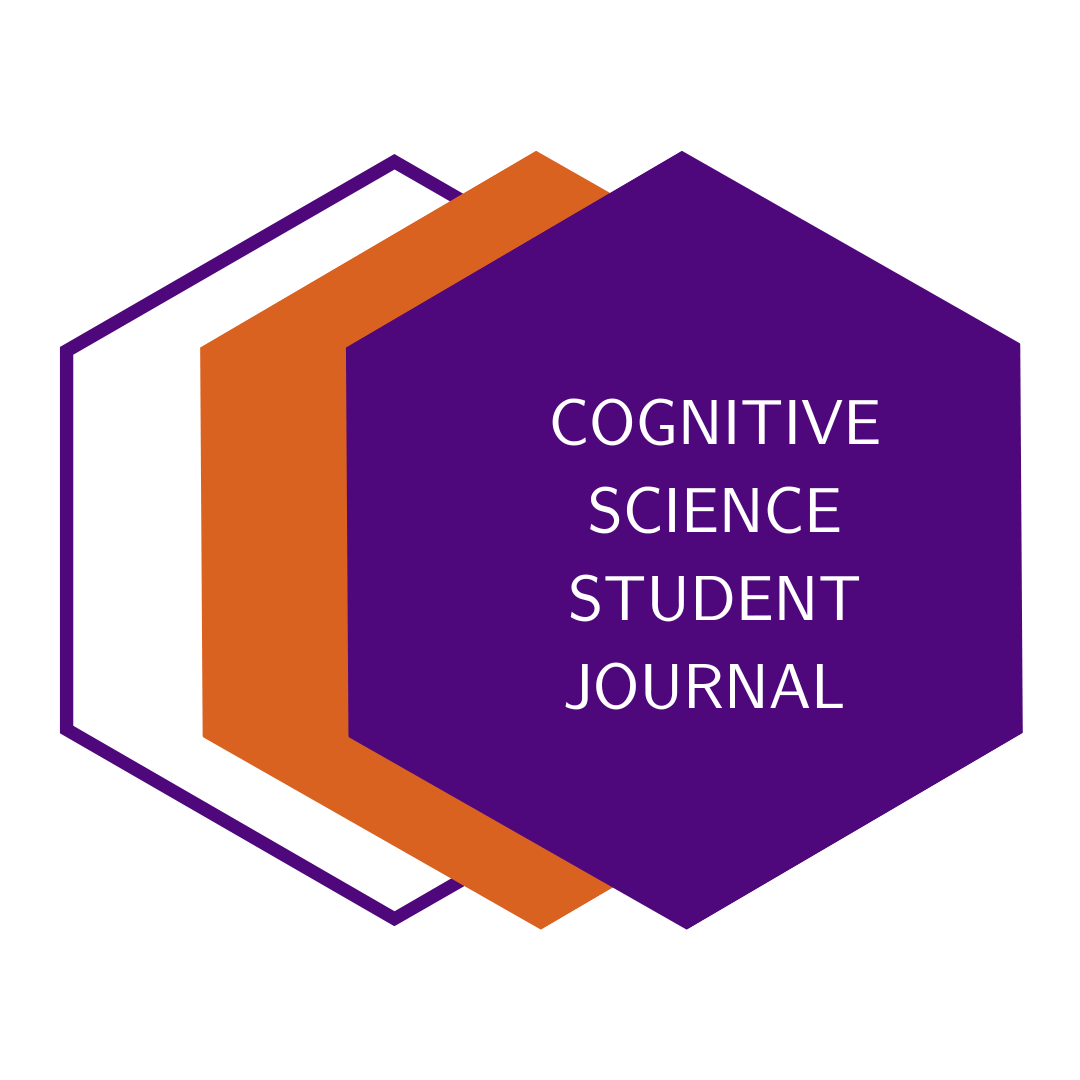Cognitive Science Student Journal
This student-led journal showcases the work of Cognitive Science students of Osnabrück University – readers can find seminar papers, project reports, interviews, educational videos and more! Cognitive Science is an interdisciplinary research field investigating cognition and the mind, conclusively the journal content comes from diverse backgrounds and covers a wide range of topics. The authors of the Cognitive Science Student Journal provide an insight into current topics and recent advancements at our institute.
 © Simone Reukauf Fotografie
© Simone Reukauf Fotografie
The Latest 3 Articles
The representation of nonbinary gender in the German Language System
Prologue Let us begin this blog entry by traveling back to the sixties. We find ourselves in a cozyroom where a group...
What do balance, AI critique, and gendered language have in common?
All these and more were topics students brought to the course “Communicate Outward: Convey scientific knowledge to...
Visualizing Deep Neural Networks in Virtual Reality
In this paper, we improve upon existing Virtual Reality (VR) research with regard to the pedagogical use of VR for explaining Deep Neural Networks. We achieved a comprehensive understanding in five steps: a review of previous work in the field, a thorough characterization of existing issues, the development and programming of a novel VR-based software tailored for various ANN models, a detailed evaluation of this system, and a critical discussion on the future outlook and significance of this research. The results demonstrate the VR system’s effectiveness in making complex AI systems more accessible to non-experts, thereby contributing to the field of explainable AI (XAI).
Our Mission
What is the Cognitive Science Student Journal?
A platform for students to publish their work and achievements in various formats related to their studies, such as essays, posters, and videos.
What is the Mission of Our Student Journal?
We’re on a mission to create a low-stakes environment where students can dive into the exciting world of publishing and share their incredible work. We’re here to make sure that their creations don’t go to waste.
In that context, we also seek to promote freedom of science by fostering independence in research, promoting the principles of open science for greater accessibility and transparency, and facilitating effective science communication to bridge the gap between academia and the wider community.
Why Should You Send in Submissions?
Gain recognition and spotlight for your achievements, receive valuable experience in the publishing process, inspire others with your unique perspective and accomplishments and contribute to a student-driven platform that promotes student work.
What are the Values of Our Student Journal?
We’re a platform that shares research and fosters exchange. Our mission is to be a discrimination-free environment, to create room and a positive experience for everybody. “Our Commitment Against Discrimination” clearly states the values the Journal promotes and incorporates. We want to learn and improve, so if you notice an issue, please notify us.
What’s New at the Cognitive Science Student Journal?
Karen Barad, a physicist, philosopher, and feminist, uses the brittlestar - a relative of the starfish - as a living metaphor for her concept of "intra-action" in her book "Meeting the Universe Halfway".
Barad’s idea of intra-action suggests that nothing exists independently; instead, entities emerge through their relationships with one another. Brittlestars illustrate this concept of intra-action through their unique biological features, particularly their ability to constantly regenerate their form. They have evolved in continuous intra-action with their environment.
Brittlestars, according to Barad, are "living testimony to the inseparability of knowing, being, and doing."
So, the next time you see a starfish, think of it as a symbol of how everything in the universe is interconnected!
#brittlestar #karenbarad #cognitivescience #philosophy #studentjournal #staytuned #staycurious #intraaction
References:
https://www.degruyter.com/document/doi/10.1515/9780822376989-012/html
https://physicsworld.com/a/the-right-questions/
Our latest publication, “Approaching Objectivity Via Barad’s Agential Realism” by Anna Luise Backsen, is now live!
The traditional positivist view of science aims for pure objectivity, free from personal or cultural bias, but feminist ethicists and social-constructivists argue that researchers are always shaped by their socio-cultural context, making absolute objectivity in principle unattainable for researchers.
Learn about Karen Barad`s theory of Agential Realism and how it presents a possible solution to the conflict between social-constructivist claims and positivist views of universally applicable scientific truths.
This publication will be easier to read if you know what epistemology and ontology mean. Having a basic idea of feminist ethics will be helpful too.
Let`s rethink objectivity and check the article by following the link in our bio.
Stay tuned and stay curious!
#feministethics #objectivity #cognitivescience #studentjournal #karenbarad #students #philosophy #society
We are thrilled to announce a new publication in the journal. Stay tuned to explore how objectivity in science is being transformed!
Feminist Ethics and concepts like Agential Realism and Diffraction suggest that knowledge is not neutral - it is shaped by the relationships between researchers and their environment.
Stay tuned and stay curious!
#objectivity #science #feministethics #agentialrealism #karenbarad #newmaterialism #cognitivescience #studentjournal #staytunedstaycurious #philosophy
NASA’s Curiosity rover landed on Mars on August 6th, 2012. It’s mission was originally planned to be two years, but this was eventually extended indefinitely, and Curiosity continues to explore to this very day.
Curiosity was named after one of our most important characteristics as a species. Our curiosity motivates us not just to solve problems, but to understand why our solutions work and what we can do to improve them.
Our latest publication, “Regularized Curious Hierarchical Actor-Critic,” explores how we can give machine learning models a sense of curiosity, motivating them to explore problems in new and unexpected ways. Check it out to learn more!
#staytuned #staycurious #studentjournal #curiosity #machinelearning #cognitivescience
Our latest publication, “Regularized Curious Hierarchical Actor-Critic” (by Reem Farah, Niklas Heidemann, Vera Proiss), is now live!
Check it out to learn about how artificial curiosity can be implemented into deep learning neural networks in order to motivate them to explore problems in new and unexpected ways. This exploration can lead to more efficient problem solving and greater flexibility when faced with new problems.
If you’re interested in learning more about how this artificial curiosity works and how it can improve modern machine learning models, follow the link in our bio!
#staycurious #curiousity #deeplearning #machinelearning #studentjournal #problemsolving #artificialintelligence #reinforcementlearning
Curiosity killed the cat, but what did it do to the computer? New machine learning techniques have been developed to implement curiosity into deep learning networks, motivating them to explore all aspects of a problem to gain a deeper understanding rather than going straight for the solution.
Our next publication, “Regularized Curious Hierarchical Actor-Critic,” will examine what effects this implementation could have on how neural networks solve complex problems.
This publication assumes an intermediate-level understanding of machine learning techniques and linear algebra.
#cognitivescience #studentjournal #ai #curiosity #machinelearning #students #staycurious #deeplearning #neuralnetworks
Remember how Edison, Tesla, Poe, and Dali used an unusual approach to transition from waking to dreaming?
These creative minds practiced the "steel ball technique."
Picture this: they`d grab a nap with a steel ball clutched in their hand. As they drifted to sleep, *plunk*! The ball would hit the ground, waking them up. Suddenly, they`d be flooded with ideas straight from the depths of their subconscious.
If you want to know more about it, please check the poster "Imagine Hacking Your Own Dreams" by Anna Mikheeva, Maureen Minnema, and Mitra Gholami by following the link in our bio.
Stay tuned and stay curious
#dreamhacking #dreamexploration #cognitivescience #studentjournal #poster #students #funfacts #steelballtechnique
Have you ever noticed that your best ideas come to you when you’re trying to fall asleep?
Explore the potential of those late-night inspirations with our newest publication: "Imagine Hacking Your Own Dreams”: Unleash the Power of Dreamscapes! (by Anna Mikheeva, Maureen Minnema, Mitra Gholami).
Discover the secrets of “Hypnagogia” and how creative giants like Edison and Dalí used it to harness their dreams’ creative potential. Plus, see how the Dormio app can enhance your journey of self-exploration while you sleep.
Don`t miss the unveiling of this captivating poster.
Stay tuned and stay curious!
#dreamhacking #dreamexploration #cognitivescience #hypnagogia #studentjournal #poster #students #staytuned #staycurious
We are thrilled to announce a new publication in the journal. Stay tuned to explore the uncharted territory of dreams!
Learn more about «hypnagogia» and how great thinkers like Thomas Edison and Salvador Dalì drew creativity from their dreams. 😴🧠
Don’t sleep on this upcoming poster!
#staytuned #staycurious
#dreamexploration #cognitivescience #hypnagogia #studentjournal #poster #students #osnabrück





